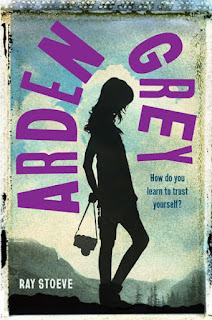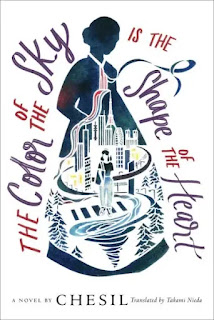The author's clever decision to use a fictional disease means that the story focuses less on the symptoms of the disease (which are admittedly fascinating) than on the universal experience that Anna is going through. And, this being YA, more on the social aspects of the experience than the physical. Anna finds that being sick doesn't just change her as much as it changes how people interact with her and vice versa. Friends don't know how to relate to her and she feels tempted to shut them out as she becomes frustrated by their lack of understanding and sympathy. I think back on my own experience and I was lucky enough to get my own diagnosis in my thirties when the impact on my social life was less traumatic (and less important), but that does make the alienation that Anna feels any less familiar.
And it's the book's ability to connect to my own experience that draws me to it so strongly. Kamins has created the book that, as she says in the afterward, she wishes she had had when she was diagnosed as a teen with lupus. I certainly found myself chuckling from time to time in recognition of shared moments and experiences (and more poignantly, painful experiences that I have suppressed from that time). For anyone who has received a diagnosis of a chronic disease, Anna's story will be familiar and ring true. It may be a book written for teens, but adults will benefit from it as well. We talk a lot these days about the importance of recognition -- creating stories that acknowledge groups whose voices are not heard. This is a book for the many millions of people who live with diseases that can't be cured.











